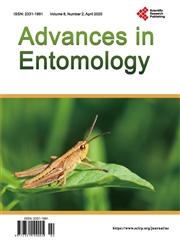Finding Food Security through Changing the Agricultural Model to Sustain Insect Biodiversity
引用次数: 0
Abstract
Worldwide biodiversity is being threatened by human activities to a greater level wherein the natural ecosystems are reaching the verge of collapsing. We are faced with four major interrelated challenges namely a changing climate, biodiversity loss, human population growth and food production for this growing population. Agricultural intensification contributes significantly to biodiversity loss. The agricultural model for our current food production systems is mainly based on the Green Revolution, which promoted the cultivation of crops in extensive monoculture fields and intensified external inputs of agrochemicals. This model resulted in biodiversity loss, particularly in insect populations. A model based on ecological intensification as an alternative to agricultural intensification with minimized use of agro-inputs may slow the rate of biodiversity loss resulting in more sustainable agricultural ecosystems.通过改变农业模式维持昆虫生物多样性寻找粮食安全
世界范围内的生物多样性正受到人类活动的威胁,自然生态系统正处于崩溃的边缘。我们面临着四个相互关联的重大挑战,即气候变化、生物多样性丧失、人口增长和为不断增长的人口生产粮食。农业集约化是生物多样性丧失的重要原因。我们当前粮食生产系统的农业模式主要基于绿色革命,它促进了在广泛的单一栽培领域种植作物,并加强了农用化学品的外部投入。这种模式导致了生物多样性的丧失,尤其是昆虫种群的丧失。以生态集约化为基础的模式作为农业集约化的替代方案,尽量减少农业投入物的使用,可以减缓生物多样性丧失的速度,从而实现更可持续的农业生态系统。
本文章由计算机程序翻译,如有差异,请以英文原文为准。
求助全文
约1分钟内获得全文
求助全文

 求助内容:
求助内容: 应助结果提醒方式:
应助结果提醒方式:


